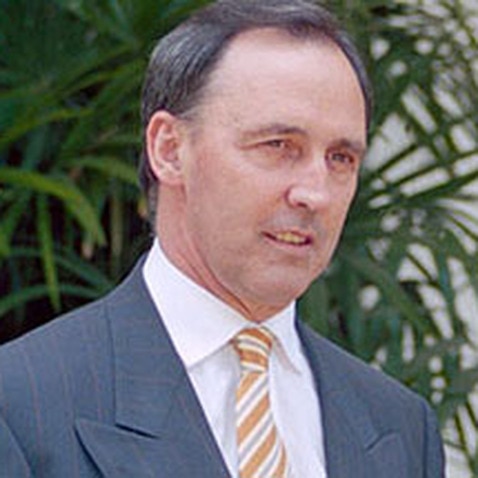'Barely coherent': Turnbull hits out at Keating criticism over Australian republic

READ MORE
Malcolm Turnbull said accusations from Mr Keating that his commitment to an Australian republic had waned were “completely wrong”.
Mr Keating has criticised prime ministers since John Howard for failing to use their leadership position to move the nation towards a republic.
“A whole series of prime ministers have broken the nation’s heart on the republic,” Mr Keating said in an interview with The Australian newspaper.

“I mean, how pathetic. No great state has ever had the monarch of another country as its head of state. Australia is a diminished country, diminished by its own hand, maintaining the monarchy and our reliance upon the sovereignty of Great Britain.”
Mr Turnbull declared himself an Australian republican and Elizabethan after meeting with Queen Elizabeth at Buckingham Palace last July.
Mr Turnbull said during the Queen’s reign he would not be reviving his campaign for a republic, which he spearheaded during the failed 1999 referendum as co-founder of the Australian Republic Movement (ARM).
‘A chameleon act’
Former prime minister Paul Keating said that the position taken by Mr Turnbull is a “chameleon act”.
He rejected the approach outlined by Malcolm Turnbull for the public to instigate the move towards a republic through a “street by street” campaign, after the Queen’s reign.
He said without the leadership of the prime minister and governing party, the idea of an Australian republic would fail to become a reality.
“He has little or no policy ambition and commensurably little imagination, no system of prevailing beliefs,” he said.

“Was just Malcolm being another chameleon doing another chameleon act as he has on so many other things? You know, I was real but is Malcolm real?”
Malcolm Turnbull said he is bewildered by the attack from Mr Keating, describing it as “barely coherent”.
“I don’t know what’s prompted Paul to come out swinging at everyone. He seems to be critical of every prime minister and former prime minister apart from himself,” he told reporters in Sydney.
“We gave it a red-hot go in ’99. I expect it will become an issue again after the end of the Queen’s reign, but I don’t think it will become a frontline issue before then.”
Doomed republican model outlined in 1995 cabinet papers
In newly released cabinet papers, Mr Keating wrote of his support for a minimalist republican model that went against the option preferred by the public.
About 70 per cent of those surveyed in a 1995 poll said they supported the direct election of the president.
Mr Keating’s submission to cabinet in March 1995 noted that view, but proposed a single nomination from the prime minister for a head of state, which would then need to be endorsed by a two-thirds vote of parliament.
The president would then adopt the powers formerly exercised by the governor-general.
The date set for Australia becoming a republic was 2001, a century after federation.
Republicans warned of dangers of Trump-like president
This model would avoid the perils of populist figures challenging the authority of the prime minister, Mr Keating wrote.
“It would also avoid the risk inherent in popular election, that the head of state might be tempted to assume, or presume to take moral authority from a popular national mandate and exercise the powers of that office in a manner which could bring the office into competition with the government of the day,” the submission read.
Mr Keating told The Australian newspaper, the risks of such a scenario have been amply demonstrated by United States president Donald Trump.
“We could end up with a Donald Trump personality as the singular presidential person in Australia,” he said.
“The mere fact that that person is the only person popularly elected will draw all of the political power. The position of the prime minister and the cabinet will be mightily diminished.”

Another plebiscite?
Prime Minister Turnbull said if the issue gained enough public support, there would need to be a “honest, open” debate on the best model for electing a president.
“Whether the president would be chosen by parliament, you know, in a bipartisan, two-thirds majority as proposed in ’99 or directly elected. That is the rock on which the referendum floundered in ’99.
“You’ve got to have that discussion and it may be that a plebiscite, maybe even a postal survey, given the success of the marriage postal survey, could be one way to deal with that.”
He reiterated his belief that the Australian people, and not the parliament, must drive the change.
“It’s very important to recognise this is not a change that parliament can make. This is a question for the Australian people; and Australians have shown themselves to be very conservative when it comes to constitutional change. But there is no point pretending that there is an appetite for change when there isn’t one at the moment.”
Since Federation in 1901, only eight out of 44 proposals for constitutional change have been supported by voters.
Article source: http://feedproxy.google.com/~r/sbsnews-topstories/~3/XvX0hNYxVWA/manus-refugees-likely-discussion-topic-as-shorten-set-to-dine-with-new-zealand-pm
Comments
Post a Comment